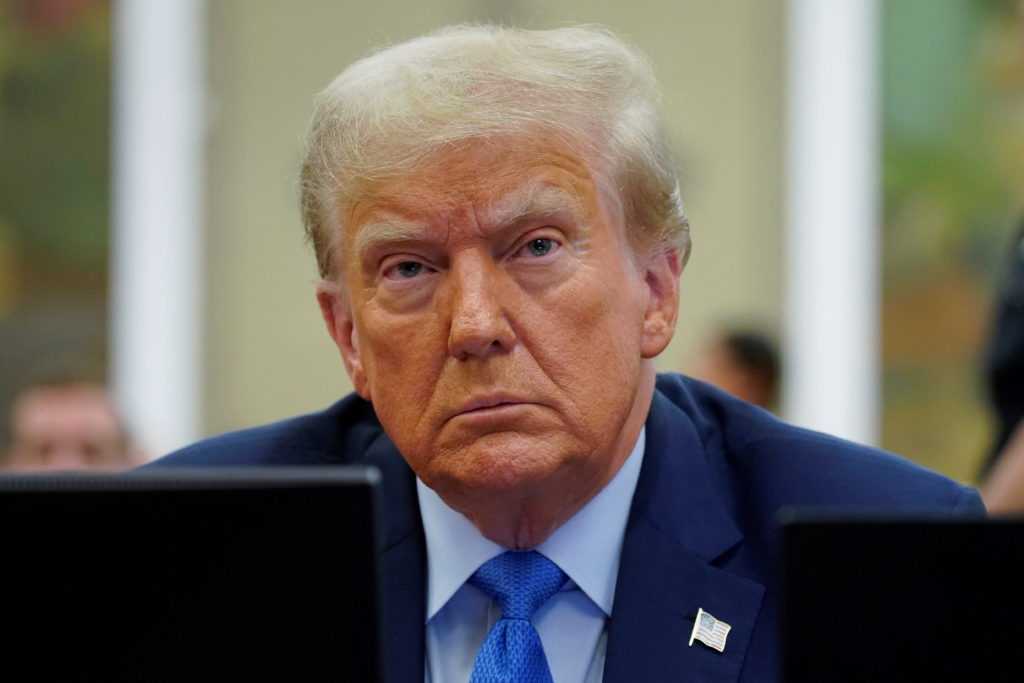
NEW YORK (AP) — Launching a final effort to make their case, New York state lawyers and Donald Trump’s defense filed court papers Friday highlighting their takeaways from more than 10 weeks of testimony in his civil business fraud trial.
The filings preview closing arguments, set for Thursday, in a lawsuit that is consequential for the leading Republican presidential hopeful even while he fights four criminal cases in various courts. The New York civil case could end up barring him from doing business in the state where he built his real estate empire.
New York Attorney General Letitia James brought the lawsuit, which accuses Trump, his company and key executives of deceiving banks and insurers by vastly inflating his net worth. James argues that Trump got attractive rates on loans and insurance because of the wealth he claimed on his personal “statements of financial condition,” or “SFCs” for short.
The suit alleges that the documents gave exorbitant values for golf courses, hotels, and more, including Trump’s former home in his namesake tower in New York and his current home at the Mar-a-Lago club in Palm Beach, Florida.
“The conclusion that defendants intended to defraud when preparing and certifying Trump’s SFCs is inescapable,” Kevin Wallace, a lawyer in James’ office, wrote in a filing Friday. “The myriad deceptive schemes they employed to inflate asset values and conceal facts were so outrageous that they belie innocent explanation.”
The defendants, including his sons Donald Trump Jr. and Eric Trump, deny any wrongdoing.
The former president asserts that his financial statements actually came in billions of dollars low, and that any overestimations — such as valuing his Trump Tower penthouse at nearly three times its actual size — were mere mistakes and made no difference in the overall picture of his fortune.
He also says the documents are essentially legally bulletproof because they said the numbers weren’t audited, among other caveats. Recipients understood them as simply starting points for their own analyses, the defense says.
“Errors or misstatements happen all the time in accounting,” attorneys Michael Madaio and Christopher Kise wrote in a filing Friday for Trump, his Trump Organization and some executives. Such errors don’t amount to fraud unless there’s an indication of concealment, forgery, deceit or the like, and there was none, the attorneys argued.
Separately, defense lawyers argued that claims against Executive Vice Presidents Eric Trump and Donald Trump Jr. should be dismissed because they never had “anything more than a peripheral knowledge or involvement in the creation, preparation, or use of” their father’s financial statements.
The sons relied on the work of other Trump Organization executives and an outside accounting firm that prepared those documents, attorneys Clifford Robert and Michael Farina said, echoing the scions’ own testimony.
Their father also took the stand and made a stream of comments in the courthouse hallway. He painted the case as a political maneuver by James, Judge Arthur Engoron and other Democrats, saying they’re abusing the legal system to try to cut off his chances of winning back the White House this year.
The verdict is up to the judge because James brought the case under a state law that doesn’t allow for a jury. Engoron has said he hopes to decide by the end of this month.
He will weigh claims of conspiracy, insurance fraud and falsifying business records. But he ruled before trial on the lawsuit’s top claim, finding that Trump and other defendants engaged in fraud for years. With that ruling, the judge ordered that a receiver take control of some of the ex-president’s properties, but an appeals court has frozen that order for now.
Now, James is seeking additional penalties of more than $300 million and wants Trump to be prohibited from doing business in New York.
During the trial, Engoron fined Trump a total of $15,000 after finding that he violated a gag order that barred all trial participants from commenting publicly on the judge’s staff. The order was imposed after Trump maligned the judge’s principal law clerk.
Trump’s lawyers are appealing the gag order.
Associated Press writer Michael R. Sisak contributed.
ncG1vNJzZmivp6x7sa7SZ6arn1%2Bjsri%2Fx6isq2egpLmqwMicqmisoqq6sb%2BMnKCvoZxis7Ot1J1kraqZlrluusSaqaxllaOxbq3SZqOen5Gheqe1y6KloKtdpb%2Bmwsiermamla3BbsPEnqKsZZOhvLS1zaBkmqqXqrqmutOs